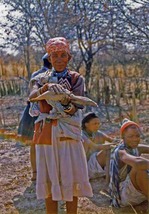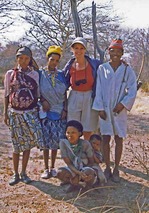|
Last week I spent the day at MediaCity, the BBC's brand new HQ in the north, courtesy of the Arts and Humanities Research Council (AHRC) New Generation Thinkers scheme. MediaCity is a metro-sexy-looking place, with tall buildings condomed in sleek glass or copper or stainless steel. It overlooks the reclaimed Salford Quays. It was grey day. Even Robbie what’s-his-name from Strictly Can’t Dance couldn’t brighten it as he jogged past, all über-tanned torso and over-blond locks. It’s my impression that it’s always grey in Manchester. I did a degree there and can't remember the sun shining once. Fortunately the folk up north are warm and friendly and allowed us to ogle as we stepped into a penthouse-style space called the Imagine room. I tried to imagine what it has cost the license payer but lost count while drooling over the Armani-looking sofas. Shifting my gawp from the million-pound views, I found myself surrounded by bright young things, from the BBC staffers to my ‘rival’ academics. I settled my specs on my nose and reflected on the consequences of having had other careers first. The New Generation Thinkers scheme is a clever one, providing as it does an ever-widening pool of pundits for the Beeb to call upon when they need panelists or interviewees. And for academics, it ticks the Impact box in the Research Excellence Framework (REF) form, so it's win-win. (If you don't know what I'm talking about re REF, keep it that way. The research imperative in UK universities is onerous these days, especially for someone like me who never meant to be an academic.) But there I was and soon enjoying myself listening to and discussing the key elements of good Arts and Culture programmes. It struck me that these dovetailed with the elements of good feature writing which I teach to my Journalism students, i.e. start with a hook, use vivid detail to create word pictures, match your tone to your subject matter, present your argument with clarity and consistency and don't shy away from the personal. I thought it was much harder to embrace the facilitate-stimulate-detonate qualities of a good presenter of panel discussion on public radio. Academic etiquette dictates that one allows one's debating adversary as much time as they’d like to pontificate, obfuscate or annihilate themselves in an argument. Clocks do not tick loudly in ivory towers so seldom does one academic have to baldly point out (especially within the adversary’s hearing) that they are talking tosh. This, however, can make for interesting radio, we gathered from various clips played to us. But the dissing was missing as we floundered around the banal topic of ‘Is life comedy or tragedy?’ in a dispiriting tag team debate. In desperation, while briefly occupying the Presenter’s chair, I labelled the argument of an admirably spiritual biographer from Hull as ‘base’. It wasn't; very high-minded actually, but he was supposed to be arguing for comedy.) My declaration evoked an un-zen-like riposte. Later I hissed ‘bastard to a sweet-faced fellow from somewhere up north who trapped me into showing the comic underbelly of my argument while I sat uncomfortably in the Tragedy chair. A shame you couldn't see my 'fair cop' grin on radio. I hope the chaps won’t hold it against me. It was all in the spirit of getting them to drop their academic drawers in public. I think I did better with my mini-thesis pitch though I forgot to mention the dangerous and exciting bits, namely, that my field trip had placed me in the path of an irate bull elephant and a veld-fire the size of a subcontinent — which I had to flee in a fuel-laden Land Rover wheel-spinning in sand turned molten by the surrounding inferno. On second thoughts, I probably didn’t need that bit. I probably said enough dangerously exciting things at the BBC for one day. The BBC/AHRC New Generation Thinkers 2012 finalists will be announced at the end of April.
2 Comments
A long time ago, the band of San people pictured here, allowed me a glimpse into their way of life.
An arduous journey had taken me far beyond the tarred road's end into the Namibian part of the Kalahari desert. There I found a small band of click-language speakers, Ju|'hoansi, specifically, who were trying to live off veld food: roots, berries, leaves and the odd game bird. They hadn’t seen ‘big meat animals' in decades; game fences had long ago put paid to the migration of the vast herds of antelope that used to traverse the Ju|’hoan’s traditional hunting grounds. I was there not as an anthropologist, but simply as a rookie novelist. I wanted to tell a story about a San girl but with some ethnological accuracy. I’d read everything I could find in those pre-internet, pre-university library access days. Anyway, as a writer I needed to know exactly what colour the Kalahari sand my character would squat in, was. And what the skin of the baobab fruit felt like. (Short pile velvet.) Slowly, shyly, the band and I became acquainted and eventually I was able to go out gathering and tracking with them and was invited to sit around their campfire listening to a traditional story. It was a seminal moment and when I left the people said: ‘Don't throw us away’. More than ten years later, I still hadn’t managed to find a publisher for the novel the trip had sparked. But in 2006 Salt & Honey was picked up and published by a then fledgling imprint called Legend Press. Naïvely I imagined that it would sell millions or the film rights would be optioned by Angelina Jolie, mad for things Namibian having just given birth there to her first child. I saw myself gifting the San who’d been so generous with me. It was not to be. In the end, thanks mostly to the sale of foreign rights, I was lucky to get back the money I’d borrowed from family savings in order to finance my research trip. Proud as I am of the sequel, Kalahari Passage (Tindal Street press, 2011) I’m not convinced it’s going to make anyone’s fortune either. Which is fine. I didn’t write about Koba to make money or a name for myself, but because I felt a wider world than that of San scholars should know about the injustices suffered by these gentle indigenous groups. But this leaves me with a debt still unpaid to the people of the Kalahari. It’s for this reason that I’d now like to explore the feasibility of using digital technology to allow the San to capture and collate story-telling material, use it to create an app, market it and profit from any sales. My project is tentatively titled ‘From Kalahari campfire to cyberspace: turning an oral folktale into an enhanced e-book.’ More utilitarian than catchy, so feel free to make suggestions. I am indebted to colleagues at the University of Wolverhampton for their help with this, especially those in the Project Support Office and in the Centre for Transnational and Transcultural Research. My thanks in advance to my patient and knowledgeable external advisors, Dr Megan Biesele and Marlene Winberg. I fear they are going to shudder everytime they see an email from me land in their Inboxes. I have much to learn from them and from San I’m eager to include just as soon as I secure funding for this project. Wish me luck as try to get this seed to sprout. And if you have any information which might help the project along, please, please share it. |
AuthorAfrican novelist and out-to-grass, academic. Archives
January 2024
Categories
All
|




 RSS Feed
RSS Feed